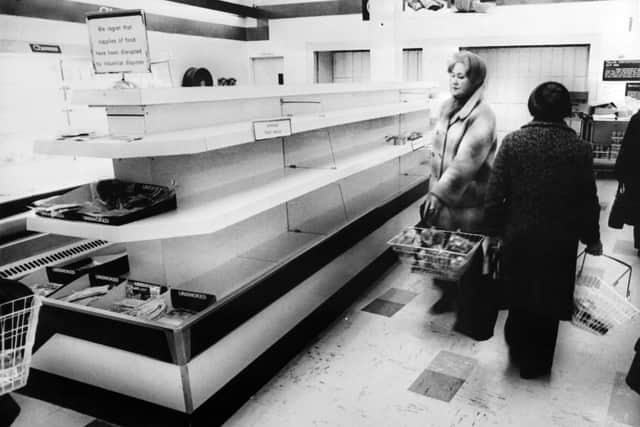Is talk of a return to 1970s industrial action credible or mere scaremongering?
Inflation is spiralling, with the nation in the grip of an energy price crisis. While some are celebrating a Royal Jubilee, many are railing against exorbitant prices and soaring bills. Even ABBA are playing sold-out UK concerts - albeit with the aid of digital technology.
Increasingly, such parallels are being seized upon by commentators, who warn Britain is in danger of reliving a decade routinely characterised as a time of hardship and decline. Much of their ire is focused on the threat of nationwide industrial unrest, and sides are being chosen. ‘We need Thatcher's iron will to defeat the union militants’, thundered one recent headline in the Daily Express.
Advertisement
Hide AdAdvertisement
Hide AdBut is there credibility to such comparisons, or is it mere scaremongering designed to turn public opinion against trade unions? And is it realistic to expect a return of widespread disruption?
As things stand, we are nowhere near the kind of entrenched disputes once witnessed. At its nadir, in the winter of 1978/79, Britain saw more than 2,000 strikes, a level of action unparalleled since the General Strike of 1926.
As Jim Callaghan's government tried to enforce pay freezes, Ford and bakery workers were followed by railway workers, and haulage and petrol tanker drivers. Come January 1979, more than a million low-paid council workers joined them.
Rubbish piling up on the streets became a defining image of the dispute, as did the strike by gravediggers in Liverpool and Greater Manchester. Only around 80 men walked out in the latter action, but the notorious images of mourners being turned away carried power.
While there are no credible indications of a repeat of such chaotic scenes in 2022, unrest is growing. Industrial disputes stand at their highest level for five years, with unions fighting on multiple fronts. In the 12 months to April, the Trade Unions Congress logged at least 300 disputes, with many linked to ongoing University and College Union strike action.


Trouble is brewing further afield. The RMT has voted overwhelmingly in favour of UK-wide action, with the union set to stage a separate ballot over ScotRail’s “derisory” 2.2 per cent pay offer. Aslef, the train drivers’ union, remains locked in talks with the newly nationalised operator.
Elsewhere, civil servants in the PCS union have voted in favour of national strike action, with BT workers to be balloted on the first strike action to hit the company in 35 years. Only this week, meanwhile, GMB Scotland said industrial action “looks inevitable” unless COSLA improves its pay offer for nearly 10,000 council workers.
There is a possibility that those disputes could escalate and lead to mass walkouts, but old canny hands believe it is unlikely such a scenario will come to pass.
Advertisement
Hide Ad